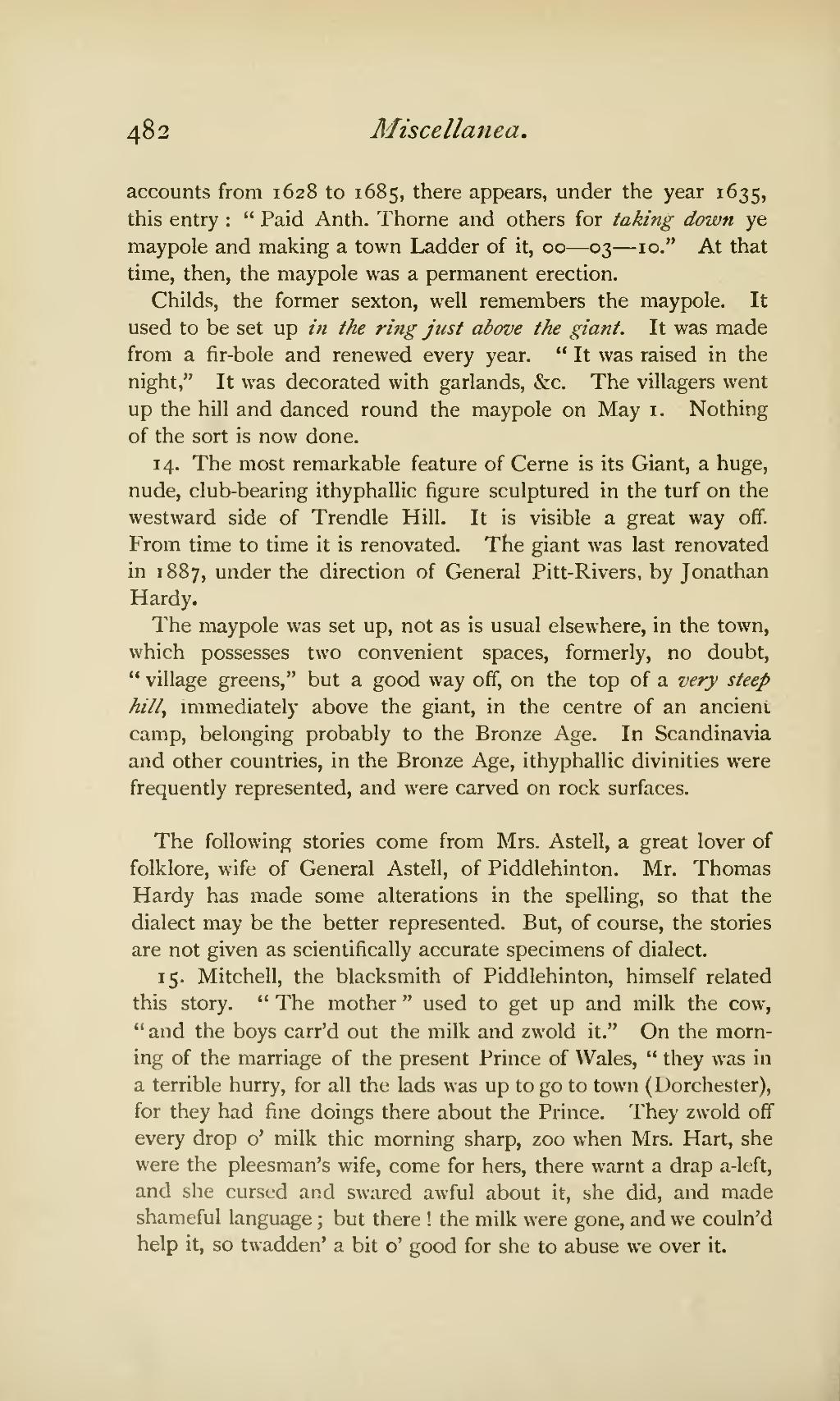accounts from 1628 to 1685, there appears, under the year 1635, this entry: "Paid Anth. Thorne and others for taking down ye maypole and making a town Ladder of it, 00—03—10." At that time, then, the maypole was a permanent erection.
Childs, the former sexton, well remembers the maypole. It used to be set up in the ring just above the giant. It was made from a fir-bole and renewed every year. "It was raised in the night," It was decorated with garlands, &:c. The villagers went up the hill and danced round the maypole on May 1. Nothing of the sort is now done.
14. The most remarkable feature of Cerne is its Giant, a huge, nude, club-bearing ithyphallic figure sculptured in the turf on the westward side of Trendle Hill. It is visible a great way off. From time to time it is renovated. The giant was last renovated in 1887, under the direction of General Pitt-Rivers, by Jonathan Hardy.
The maypole was set up, not as is usual elsewhere, in the town, which possesses two convenient spaces, formerly, no doubt, "village greens," but a good way off, on the top of a very steep hill, immediately above the giant, in the centre of an ancient camp, belonging probably to the Bronze Age. In Scandinavia and other countries, in the Bronze Age, ithyphallic divinities were frequently represented, and were carved on rock surfaces.
The following stories come from Mrs. Astell, a great lover of folklore, wife of General Astell, of Piddlehinton. Mr. Thomas Hardy has made some alterations in the spelling, so that the dialect may be the better represented. But, of course, the stories are not given as scientifically accurate specimens of dialect.
15. Mitchell, the blacksmith of Piddlehinton, himself related this story. "The mother" used to get up and milk the cow, "and the boys carr'd out the milk and zwold it." On the morning of the marriage of the present Prince of Wales, "they was in a terrible hurry, for all the lads was up to go to town (Dorchester), for they had fine doings there about the Prince. They zwold off every drop o' milk thic morning sharp, zoo when Mrs. Hart, she were the pleesman's wife, come for hers, there warnt a drap a-left, and she cursed and swared awful about it, she did, and made shameful language; but there! the milk were gone, and we couln'd help it, so twadden' a bit o' good for she to abuse we over it.
